
David
Yee
VP of Engineering
The New York Times

We reviewed hundreds of CFP applications and hand-picked over 25 talks guaranteed to help you grow as an engineering leader.

A welcome to LeadDev New York 2024 from the host David Yee.
Your host David Yee welcomes you to the day, run through our code of conduct and let you know what we've got coming up.
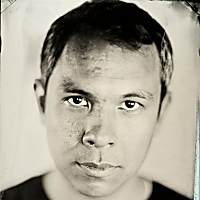
David Yee is VP of Engineering at the New York Times. As an engineering leader, he’s built and scaled teams at both small and enormous companies in the worlds of journalism, music, and art—with an emphasis on product-oriented engineering and humane management. His career has included roles as Chief Architect and co-founder at 20x200, co-founder and CTO at Editorially, and Engineering Director of Chorus at Vox Media
View David's LeadDev articles and talks

Lena Reinhard will help you change the way you think and operate, and will help you be the leader that your business and your team needs during this time of uncertainty.
After years of high growth, many tech companies realized over the last six months that their projections were too optimistic. As a result, they changed strategy, cut budgets, restructured, and laid off many thousands of employees. Having spent years interviewing, hiring, growing teams, and taking bigger strategic risks, our roles as leaders are now shifting.
In this talk, we‘ll explore:
Leading in a tech downturn is challenging for you and for your teams. Applying the steps outlined in this talk will help you change the way you think and operate, and will help you be the leader that your business and your team needs during this time of uncertainty.
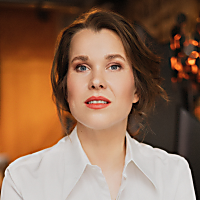
Lena Reinhard has dedicated her career to building successful, high-performing globally distributed engineering organisations, and helping teams thrive in times of high change like hypergrowth. She now offers transformational leadership coaching and consulting for leaders. Previously, Lena served as VP Engineering with CircleCI and Travis CI, as well as a startup co-founder & CEO, and through her cross-functional background and experience, she brings a unique perspective on systems of technology, business, and people.
View Lena's LeadDev articles and talks
Dr Carol Lee shares an example of a successful internal hackathon at Pluralsight and how it impacts developer experience.
Hackathons are a beloved and long-running tradition in the tech industry–but what do we really know about making them work?
Much of the research on hackathons has focused on success only defined in terms of their impact on products: for example, how many hackathon projects lead to new features. But hackathons can also be a critical turning point for people: a place where developers can safely experiment with new identities and new ways of working together.
In this lightning talk, I’d like to share an example of a successful internal hackathon at Pluralsight and how it impacts developer experience. I’ll present evidence from our original research study, where we used rigorous research measures of anxiety and imposter syndrome to find quantitative evidence for the benefits of hackathons with 64 participants, using pre- and post-measures from behavioral science. Crucially, we found that teammate behavior during hackathons was an important lever for mitigating people’s stress, anxiety, and imposter syndrome, and that positive hackathon experiences can predict not only good outcomes from a single hackathon, but also people’s likelihood of engaging with hackathons and new technical work afterward.
Hackathons aren’t just good for team-building in the moment: in our study, we found that hackathons can serve as a microcosm for engineering teams in general, which work in similarly high stress and time-limited environments. One key take-away from our story is that leadership investment in small but powerful novel learning opportunities outside of people’s normal day-to-day work, like hackathons, can have a long-term impact in developers’ growth and sense of belonging within an organization. In this talk, I’ll provide science-backed, actionable recommendations for how managers can run successful hackathons, foster a culture of team belonging and learning, and mitigate the impacts of workplace anxiety and imposter syndrome, which disproportionately impact employees with minoritized identities.

As a Principal Research Scientist in the Developer Success Lab, Carol leverages her expertise in mental health and thoughtful measurement to study how developers cope and thrive through stressful circumstances. Carol has over a decade of experience leading academic and industry research in clinical health, measurement, and human behavior. Carol serves as a research fellow at the Integrated Behavioral Health Research Institute and as a clinical science advisor for Bravely Mental Health. She holds a Ph.D. in clinical psychology from UMass Boston.
View Carol's LeadDev articles and talks

Jon Thornton discusses how this framework was used to rapidly build and ship Squarespace's Email Campaigns product in less than 15 months. Along the way, you'll get several practical guidelines for how tech debt can supercharge your technical investments.
“Technical debt” is a dirty word in the software engineering field, but financial debt isn’t universally reviled in the same way. The difference is intention.
What if tech debt wasn’t always an accident, caused by incorrect assumptions and unexpected circumstances? How would you spend a tech debt mortgage? This talk presents an investment-based approach to thinking about software development. Time is our currency; we can spend it now, and we can also take on technical debt that commits us to spend time later. Project tasks are investments that cost time and return something of value, like user-facing features or learnings for the development team. But watch out—most investments aren't a sure thing, so you need to spend wisely. By taking risk into account and prioritizing creating value sooner, you can reduce wasted effort and improve your project's odds for success. We'll discuss how this framework was used to rapidly build and ship Squarespace's Email Campaigns product in less than 15 months. Along the way you'll get several practical guidelines for how tech debt can supercharge your technical investments, with real examples from inside Squarespace.
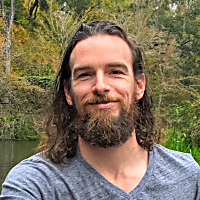
Jon is a Principle Engineer at Squarespace in New York City, where supports the Squarespace Scheduling product. Previously he led product engineering teams at Blink Health and Knewton, and cofounded Arrive. Jon likes public transit, rock concerts, and NYC's beaches.
View Jon 's LeadDev articles and talks
Matthias Grüter addresses technical discussions of advanced gRPC concepts such as interceptors, load balancing, and traffic management and how they are essential in large distributed systems.
At Spotify, we have historically built services based on our own proprietary messaging protocol and framework. Three years ago we kicked off the daunting multi-year task of migrating everything to gRPC. Migrating over 3000 services to gRPC poses interesting challenges, many of them are not technical in nature - it all boils down to questions of engineering culture and leadership at scale: How do you get 400 autonomous engineering teams to align on something as fundamental and cross-cutting as a new RPC framework? How do you roll-out gRPC at scale with minimal disruption to both the organization and to the end-user? This presentation will address these questions alongside more technical discussions of advanced gRPC concepts such as interceptors, load balancing, and traffic management and how they are essential in large distributed systems.
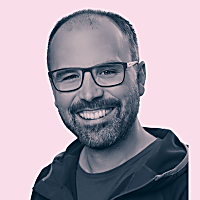
Throughout his working life, Matthias has flip-flopped between leadership & engineering roles. Having worked along both tracks for many years gives Matthias a unique perspective on challenges that are both technical and organizational in nature. Matthias is the engineering lead for Spotify's compute and networking group. His team builds the infrastructure and platform on top of which Spotify delivers its experience. As a manager by trade and engineer by heart, Matthias feels most comfortable in the intersection between leadership and technology.
View Matthias's LeadDev articles and talks
Nora Jones will dive into how we can get the most out of incidents before they become our culture in a way we didn't intend.
Every company has things that take them out of their day-to-day, that require immediate coordination and attention.
Whether or not folks call those incidents is one thing, but these events take us away from our day-to-day which impacts our productivity, planning, and goals. What can we learn from these reactive, coordinative events? The data on how our companies can improve is more often than not, hiding in these seemingly innocuous, reactive events, how people coordinated around them, and who participated. Over time, they become our culture.
In this talk, Nora will dive into how we can get the most out of these events before they become our culture in a way we didn't intend.

Nora Jones is the founder and CEO of Jeli. She is a software engineer and leader with 10+ years of experience at innovative companies including Netflix and Slack. Nora's focus on the sociotechnical aspects of engineering — the intersection between how people and software work together in practice in distributed systems — is a founding pillar of Jeli, as well as the Chaos Engineering movement and learningfromincidents.io community, both of which Nora helped build from the start.
View Nora's LeadDev articles and talks
Ben Clayman describes how an engineering lead can identify prospective team members, enable them to gain experience in the proposed role, and ultimately make the switch.
Switching roles within a tech company is no easy feat; it requires a manager with an open mind, a motivated individual contributor, and a careful plan that de-risks the process for both sides.
This talk describes how an engineering lead can identify prospective team members, enable them to gain experience in the proposed role, and ultimately make the switch. Done well, this represents a win-win: the engineer enjoys a role they are excited to take on while the lead gets a motivated employee whom their experienced engineers can mentor. This talk is based on my experience at Square, first switching from a machine learning engineer role to a backend software engineering role and then into engineering management. In both instances, I was able to try out the new role, gaining confidence that it was the right choice for me all while proving my ability to succeed at it. More specifically, this talk will discuss how to:
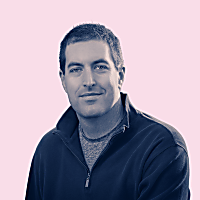
Ben Clayman is an engineering leader at Square, leading the Square Checking team within Square Banking. Before that, he helped lead Square's expansion into Europe, enabling merchants to begin taking payments in Ireland, France, and Spain. He is passionate about mentorship, especially facilitating career development for those with non-traditional backgrounds. He holds an M.S. in Computer Science from Brandeis University and an A.B. in Philosophy from Brown University.
View Ben's LeadDev articles and talks
James Courtois shares his layoff experience. Recounting this, he shares some practical considerations and grounding thoughts that might be of use regardless of your employment situation.
Most leaders identify strongly with the work they chose to commit to. When a workplace unexpectedly can’t return the commitment, it can really throw us for a loop!
In this talk, I share my layoff experience. Recounting this, I hope to share some practical considerations and grounding thoughts that might be of use regardless of your employment situation.
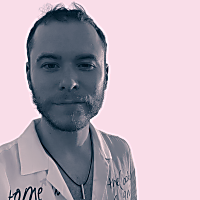
James Courtois is a technology leader passionate about low-ego engineering, solid business strategy, and growth-mindset culture. He launched his software dev career at the global IT consultancy Thoughtworks. Most recently, he was Director of Engineering at Saks, leading teams responsible for bringing luxury to life on saksfifthavenue.com. You can find him in Brooklyn.
View James's LeadDev articles and talks
Randall Koutnik talks about the three main categories of communication — pathological, bureaucratic and generative — and the important role they each play in a company's success and failure.
The world of engineering is fast paced, competitive and at times ruthless. Silicon Valley portrays engineering companies as constantly “out innovating” their competition by fostering a dog-eat-dog mentality. Yet we must step back and ask, how do companies truly manage to innovate and outpace their competition?
The answer is communication. Social science researchers have shown that how managers communicate plays a pivotal role in company success. In this talk, you will hear about the three main categories of communication — pathological, bureaucratic and generative — and the important role they each play in a company's success and failure.
You'll learn how using a generative approach lets employees see how their work is having an impact and imparts a sense of ownership and value. I will also lay out the quantitative and qualitative benefits of a mission-focused management approach, from measurable increases in productivity to satisfied engineering teams engaged in work that excites them.
How we behave as leaders can have a massive impact on how our organization behaves. Do we encourage experimentation by celebrating failure, or do we shut down anyone who brings up potential issues? It's time to pull back the curtain and face the facts: how we communicate determines whether a company thrives or fails.

Randall's career can be politely summed up as "interesting". He's worked everywhere, from tiny startups to Netflix to teaching introductory programming. He wrote a book on RxJS, which didn't impress his cats much. You can find his words in written form at https://rkoutnik.com/ and shorter words at https://twitter.com/rkoutnik
View Randall's LeadDev articles and talks

Eleanor Saitta tells you as much as possible in 30 minutes about what you do need to worry about, when you need to worry about it, how you can fix it, and what you don't need to worry about — yet.
Many teams know it's time to start getting serious about security, but don't know where to start.
Many teams know it's time to start getting serious about security, but don't know where to start. In this talk, I'll try to tell you as much as possible in 30 minutes about what you do need to worry about, when you need to worry about it, how you can fix it, and what you don't need to worry about — yet.
We'll go over application security, infrastructure security, detection and response, and all the random IT cruft that you've started using and forgotten about already. You'll get a balance of "how to think about security" and "do these specific things first", along with some of the pitfalls teams run into. We'll also cover the choices you can make about both your technology and how you manage your teams that can make the systems you build more security and more resilient.
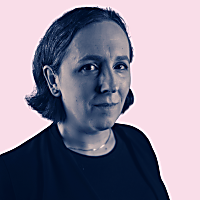
Eleanor Saitta leads Systems Structure Ltd. (https://structures.systems), a security consultancy with media, finance, healthcare, infrastructure, and software clients across the US and Europe. The consultancy provides fractional CSO services to pre-B to post-C round startups, along with security strategy and architecture guidance and threat modeling training. Saitta has worked in security since 2003, covering everything from core security engineering and architecture work for Fortune 50 software firms to cross-domain security for news organizations and NGOs targeted by nation states. Prior to founding SSL, she was the security architect for Etsy.com and worked for several security consulting firms.
View Eleanor's LeadDev articles and talks
Nisarga Markandaiah shares the things you can do to ensure success for your team while you are away, as more and more companies offer longer than before parental leaves or sabbaticals.
Ever wondered, if you as an engineering manager will be able to take an extended period of time off & come back to a team which has continued to be high functioning and productive?
As more and more companies offer longer than before parental leaves or sabbaticals, we as engineering managers are faced with the grappling question of - how will my team fare when I am gone? Will all hell break loose? Will things remain about the same?
In this talk I will share the things you can do to ensure success for your team while you are away. I had the privilege of taking 6 months of parental leave and when I came back, I was pleasantly surprised to see things functioning great, with the team having made great strides towards our annual goals & KPIs. Not only that, ICs had grown themselves in different skill sets, each of them assuming different roles and responsibilities while I was away, helping them move up in various competencies.
This talk will broadly cover:
.png)
Nisarga is an engineering manager at Etsy, having transitioned to this role recently after spending 8 years as a software engineer. She works in the search and ads organization at Etsy and her team is responsible for building and maintaining the machine learning systems which power search on Etsy’s international markets. Previously she worked in IBM where she was part of the Watson AI organization, having worked on enterprise machine learning solutions. During her free time you can find her with a pair of binoculars at a local NYC park trying to find a cool bird or with her kids (a puppy and an infant son) visiting the nearest playground.
View Nisarga's LeadDev articles and talks.png)
Elliot Sanchez shares how the mistakes made early in his career as a manager helped prepare him to handle a terrible situation in a way that stayed consistent with our values and got the members of his team to the best, most empathetic outcome we could hope for.
Layoffs. Canceled projects. Unexpected re-orgs. You may not have experienced these yet, but if you’re a people manager for long enough, you will.
What do you do when faced with a seemingly impossible situation that may also affect your own role?
I had the chance to build and lead an engineering group over several years that was delivering results on-time and had an objectively great culture, but still suddenly had our product canceled just weeks before launch. Within minutes I went from planning multi-year roadmaps to figuring out how we could wind everything down, all while helping the team process their own reactions to the news (and trying to process my own).
I’ll share how the mistakes I made early in my career as a manager helped prepare me to handle a terrible situation in a way that stayed consistent with our values and got the members of my team to the best, most empathetic outcome we could hope for.

Elliot Sanchez has built and led teams to engineer world-class app experiences with over 4.7M app installs and counting. Currently a Director of Technology at the New York Times, they were previously named to Forbes’ 30 Under 30 and awarded Teach for America's National Social Innovation Award for their work creating first-to-market tech for kids. They started their career as an alternative school math teacher in New Orleans after Hurricane Katrina, but have worked in political, government, and non-profit roles before moving into technology—diverse experiences with the common goal of helping people better understand and navigate the world.
View Elliot's LeadDev articles and talks
Enjoy some refreshments during the break
André Henry explores how an understanding of the low-level components of your systems can help you be that go-to engineer who solves those weird problems.
Do you want to be that go-to engineer who solves those weird problems? That requires an understanding of the low level components of your systems. Not just the (virtual) hardware, but the OS, algorithms, and how it all works together at a fundamental level. Leaders: come learn why this matters to your product, engineers, come learn why the investment is worthwhile.

André Henry is an Engineering leader at HARRY'S and a lifelong hacker. He is the type of person who would buy a supercomputer off of eBay. André lives at the intersection of lasers, cats, and tech. You can find him at a bookstore or home, with his wife Nivia and his cat Zuko, always learning and sharing.
View André's LeadDev articles and talks

Kristen Foster-Marks shares her experience of leading a learning-themed retrospective, which encouraged her team to reflect on their personal beliefs about learning and up-skilling, their team’s learning culture, and the ways in which these beliefs and culture can both encourage and discourage engagement in on-the-job learning and up-skilling activities.
Software development teams traditionally use the retrospective ceremony to reflect on their results, performance and processes. But the software team retrospective can – and should – periodically focus on team-level concerns beyond these traditional themes.
In this talk, Kristen Foster-Marks will share her experience of leading a learning-themed retrospective, which encouraged her team to reflect on their personal beliefs about learning and up-skilling, their team’s learning culture, and the ways in which these beliefs and culture can both encourage and discourage engagement in on-the-job learning and up-skilling activities. Through this exercise, her team began to identify the strengths and weaknesses in their learning culture, as well as if, how and why they’re accumulating personal and team-wide learning debt.
Engineering leaders will walk away with vignettes around up-skilling challenges that she and her teammates have faced in their careers, as well as an overview of and access to a learning-themed retrospective template.
_0.png)
Kristen Foster-Marks is passionate about applying evidence-based science to help software teams learn, work, and thrive. She combines eight years in software development and engineering leadership with extensive knowledge in learning science, pedagogy, and classroom-based research to develop innovative workshops, interventions, and curricula that promote effective behavior change on software teams. Kristen actively contributes to the engineering community by writing articles and giving conference talks, aiming to demystify empirical research on software teams for those best equipped to utilize its insights.
View Kristen's LeadDev articles and talks_0.png)

Suzan Bond covers the difference between the two roles and the key mindset shifts leaders need to make to manage managers.
Making the leap from managing your own work to managing others is a big career move. Managing managers might seem like more of the same but it's a whole new role which requires different skills. Just as important, we need to adopt new mindsets. This talk will cover the difference between the two roles and the key mindset shifts leaders need to make to manage managers.

Suzan Bond is an executive coach and organizational strategist. A former COO for Travis CI, she coaches technology leaders. You can find Suzan on Twitter and at SuzanBond.com.
View Suzan's LeadDev articles and talks
Closing session
Network with our community
End of event
A welcome to LeadDev New York 2024 from the host David Yee.
Simone Casciaroli shares the HEAT metrics created while working at Babylon, how they helped create a successful Platform Product, what essential product decisions you need to make to help other teams strive and how they fit with other engineering metrics like DORA.
Despite the excitement in the industry for Engineering Platforms, the truth is that they are often created without a strong product vision, and they end up being either not fully adopted or, worse, negatively affect the organisation's throughput.
While the concept of "Platform as a Product" is more well-known nowadays, most leaders are left with little clarity on how to apply product thinking to their platforms and what metrics to use to drive their evolution. I'll share the HEAT metrics we created while working at Babylon, how they helped us create a successful Platform Product, what essential product decisions you need to make to help other teams strive and how they fit with other engineering metrics like DORA.
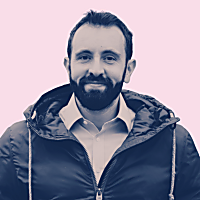
Simone Casciaroli is a technical leader who is specialised in enabling autonomous teams to continuously and incrementally ship value to customers. Simone has spent the last two decades leading technical teams across startups and scale-ups (Now TV, Babylon Health, Onto) with roles at the intersection of delivery, product, and technology. Simone has co-founded two health and personal development startups and recently joined the as Head of Engineering Doccla.
View Simone's LeadDev articles and talks
Alex Peattie talks about how to spend your most precious resource as an engineering manager: your time.
Is it possible, as an engineering manager, to nail your day job and go above-and-beyond to effect organizational change, without burning the midnight oil?
It's easy to feel overwhelmed as an engineering manager. But how is it that some engineering managers work flat-out managing a handful of reports, whereas others can juggle multiple teams without (seemingly) breaking a sweat?
This talk is all about how to spend your most precious resource as an engineering manager: your time. We'll look at the "buckets" you should be investing your time in - people, process, interfacing, technical, hiring and strategy - and how that investment typically evolves as you increase your scope. We'll look at how you can setup effective filter systems, to avoid information overload while ensuring nothing gets missed. We'll also explore how to catch the trickiest problems you'll face as an engineering manager early, to avoid cascading failures that will quickly eat up your bandwidth.
Finally, we'll look at how to strategically spend a little of the time that you earn back, to work on high-impact, org-wide initiatives. Taking a couple of examples from myself and colleagues, we'll see how spending just a few hours a week addressing your organization's hardest challenges can be genuinely transformative - both for your company, and for your own career.
The talk aims to be as practical as possible - giving specific, actionable advice and examples throughout. Attendees should leave being able to more strategically spend their time, and create better work-life balance without sacrificing their impact.

Alex Peattie is a Senior Engineering Manager at Front, a B2B SaaS unicorn providing a customer communication platform to over 8,000 customers globally. Alex was previously the co-founder and CTO of Peg, a technology platform helping multinational brands and agencies to find and work with top influencers, used by more than 2000 organisations worldwide including Coca-Cola, L'Oreal and Google. Alex has worked for organizations including GOAT, UNICEF and Nike. He has trained hundreds of junior developers and has served on the technical judging panels for TechCrunch Disrupt and the DASA DevOps awards.
View Alex's LeadDev articles and talks
Leemay Nassery and Emily Samuels give you two perspectives! They share their experiences and challenges from both sides of the senior leadership coin: staff+ and senior management.
Whether you’re a senior engineer or a senior manager, making decisions is the hardest thing you have to do. This sentiment is equally true when deciding your own career path.
Wouldn’t it be nice to have all the insights so you’re making the best decisions as to how to evolve in your career? Perhaps you want to roll the tapes forward to see what the future looks like. What exactly is expected at each level in the Staff + path vs the senior management path? How does one side work with the other? What changes as you progress as an engineering manager? Is there a symbiotic relationship between the two roles? Or maybe you’re at a pivotal moment in which you’re actually deciding right now which path you should take!
In this talk we’ll give you two perspectives! We’ll share our experiences and challenges from both sides of the senior leadership coin: staff+ and senior management. From navigating promotions in both tracks to the overlap in the problem spaces – we’ll share some uncut gems that will help you anticipate the changes in your role as you progress in your career.

Leemay Nassery is an engineering leader at Spotify. Before Spotify, she led data engineering and personalization efforts at Etsy, Dropbox, and Comcast. Leemay is passionate about tying engineering to business and user impact while keeping her team's career growth at the forefront.
View Leemay's LeadDev articles and talks
Emily Samuels is a Senior Staff Engineer at Spotify currently focusing on improving Spotify's data infrastructure. In the past, she has helped build and scale Spotify's music recommendations on Home and architected foundational datasets used for machine learning and data analytics across the company.
View Emily's LeadDev articles and talks



Jonathan Maltz digs into the nuts and bolts of setting a successful technical strategy. Startin by talking about the difference between technical vision and technical strategy.
As a technical leader, you’ll often be responsible for creating technical strategy for your area of responsibility.
The process of creating a technical strategy can be bewildering: it seems like strategy documents come in all shapes and sizes, and it’s unclear where to even get started. Fortunately, creating a good technical strategy doesn’t need to be this complicated, and setting successful technical strategies can become a reputable process.
This talk will dig into the nuts and bolts of setting a successful technical strategy. We’ll start by talking about the difference between technical vision and technical strategy: two concepts which are often discussed together, but serve very different purposes. We’ll then discuss the three core elements of a technical strategy, and how you can use a technical vision to inform those core elements. Finally, we’ll close with some common pitfalls of bad strategies and how to avoid them. You’ll leave with all the tools you need to create a crisp and successful technical strategy for your team.
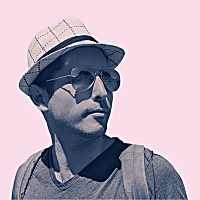
Jonathan is a Software Engineer working on scaling trust and safety systems at Stripe. In the past he's worked on every layer of the stack ranging from Android apps to data pipelines. When Jonathan's not working you can find him playing ukulele or finding new recipes to cook.
View Jonathan's LeadDev articles and talks
Erica Greene discusses some of the big ongoing tech policy debates and walks through ways you can get involved in the policy world.
Tech policy is a confusing term. It’s used both to describe the laws that regulate the technology industry as well as the technology that governments employ to provide services to their constituents. Should tech companies be liable for the content on their platforms? Tech policy. Should the US Army build applications on AWS or Azure? Also tech policy.
The world of tech policy is both vast and niche. Most congressional offices include it as a subset of a single staffer’s portfolio, often lumped in alongside transportation and telecom policy. But over the last decade, many people in DC have recognized the need for more technical expertise in government. There are now a collection of programs that allow for industry leaders to engage with the public sector without having to permanently alter their career paths.
In this talk, I’ll discuss some of the big ongoing tech policy debates and walk through ways you can get involved in the policy world. While I have spent my career in the private sector, I have done several fellowships in the tech policy space and am excited to share what I have learned with the LeadDev community.

Erica Greene is an engineering leader with a background in machine learning and an interest in technology policy. She’s managed teams of software engineers and data scientists at Datadog, Etsy and the New York Times. She spends her free time cooking, tasting wine and playing bridge in New York City
View Erica's LeadDev articles and talks
Maryam Jahanshahi discusses how studies of the confidence gap impact candidate pools based on millions of recruiting outcomes, describing three specific contexts where we've seen the confidence gap manifest.
Despite decades of efforts, the gender gap in pay and leadership opportunities is widening, not only in established industries but also in 'newer' fields such as Analytics and Data Science.
One of the reasons proposed for these disparities is the Confidence Gap: the idea that men typically apply for roles when they meet 60% of the job requirements while women need to meet 100% of the requirements to apply. This statistic is culturally resonant - people from around the world in all sorts of roles refer to it and a wealth of anecdotes in the world recruiting backs this observation up. However, the root cause of the Confidence Gap is understudied. There's a lot of research to suggest that women feel as confident in their skills, abilities and leadership as men. Perhaps we have mistaken the symptom (that is, women's inability to promote themselves) for the cause?
In this talk, I will discuss how our studies of the confidence gap impact candidate pools based on millions of recruiting outcomes. I describe three specific contexts where we've seen the confidence gap manifest (overqualified roles, job titles and language of job descriptions) and describe a model for the confidence gap and what that means for companies trying to recruit fairly. I also discuss what that means for individual job seekers and mechanisms they can use to overcome it.

Maryam heads the R&D team at Datapeople, a software company focused on using data-driven insights to improve the fairness and efficiency of hiring processes. Maryam has more than 10 years’ experience in experimental design and statistical analysis and has developed expertise in applied social and organizational psychology as well as data science, computational linguistics, and machine learning. Her research program integrates these different approaches to generate a holistic view of how language and behaviors affect decision-making at multiple stages of the hiring process. An experimental biologist by training, Maryam holds a Ph.D. in Cancer Biology from the Icahn School of Medicine at Mount Sinai, a B.Sc. (Hons) and a B.A. from the University of Melbourne.
View Maryam's LeadDev articles and talks
John Young covers specific, actionable strategies to prepare for turnover - roles and responsibilities, documentation practices, anti-patterns to avoid, and even "chaos monkey" style games - that you can use immediately to make life better both for you and for your team.
Every lead and every dev manager has been here in the past two years: The star developer on your team sets a fifteen-minute meeting on Friday morning for 2:30 pm that afternoon, with subject "Meeting." Uh-oh. And the meeting starts with a big sigh: "Well, this is hard to say, but..."
You're about to have ten business days to do lots_of knowledge transfer. You're about to revisit every roadmap and try to understand what's about to happen to your velocity. There's got to be a better way than just imploring that "everyone document everything." And there is!
There's a number of specific, useful things you can do to be prepared for turnover. You can implement specific strategies of team makeup, rotation of responsibilities, and flexible estimation that will not only take the dread out of "star performer" syndrome, but will also make everybody's job simpler, more productive, and more fun.
Ironically, being ready for team turnover can actually reduce team turnover. And it'll take some of the dread out of Friday afternoons!
This talk will be about specific, actionable strategies to prepare for turnover - roles and responsibilities, documentation practices, anti-patterns to avoid, and even "chaos monkey" style games - that you can use immediately to make life better both for you and for your team.
.png)
John has been writing code and leading teams of developers since 1999. John firmly believes that the best predictor of success on a project is how well the team communicates – and whether they have the right tools and information to do their jobs. The thing John most passionate about is knitting high-performing developers into capable, competent, cheerful teams that deliver amazing results.
View John's LeadDev articles and talks.png)
Brianna McCullough talks about how to structure compelling stories that lead to alignment, buy-in and most importantly belief from our stakeholders, partners, and more importantly our teams.
As Shane Snow once said, "Good stories…stick in our minds and help us remember ideas and concepts in a way that a PowerPoint…never can".
The ability to tell a beautiful story about yourself, a product, the work you do, or your team is truly a gift. Over the years and after sitting through many interviews, and presentations I've realized one thing--most of us aren't good story tellers--and that's OKAY because I am going to teach you!
For me, as a leader storytelling is not just important for product launches and marketing strategy--learning how to tell our stories is about getting people to believe in YOU. Telling great stories about a product creates evangelists: people who believe in your idea or product and promote its value to others.
This talk will be about how to structure compelling stories that lead to alignment, buy in and most importantly belief from our stakeholders, partners, and more importantly our teams.

Brianna McCullough is an authoritative force conquering dynamic duality as an Infrastructure Program Manager at Google and founder of the lifestyle empowerment brand, Bri Limitless. In her daily mission to diversify the engineering industry, the innovation leader and Detroit, Michigan native, resiliently shares her voice and vision for inclusivity across STEM fields, simultaneously serving youth and fellow millennials with mentorship and enthusiastic encouragement to live life without limits. Brianna’s dedicated discipline and knowledge has led her to captivate audiences at Google Developers Fest, Ernst and Young, Afrotech and so many more. Her engineering milestones earned her the Minnesota Pioneer Women in Tech award in 2017. She is a graduate of Michigan State University.
View Brianna's LeadDev articles and talks
David LaMothe discusses a model much like the DORA4 model, except instead of focusing on metrics like time to merge and rate of recovery, focusing on personally developed metrics for feedback that ensures he is giving it early and often.
Feedback is a complicated subject that we as a community spend a lot of time thinking about. Much of this thought is focused on the how of feedback, both giving feedback and receiving. While these are both essential topics to discuss, one thing that gets left out of the discussion is how often we give it.
In her landmark book Accelerate, Nicole Forgsen describes the DORA4 metrics, which represent four different metrics that calculate the performance of a software development team. The ultimate goal of these four metrics is to make changes small, manageable, and frequent so that when things go well, you build more momentum, and when things go wrong, you can correct the mistakes quicker.
I believe this fundamental philosophy can also be applied to feedback, where giving it early and often is the best way to achieve a sustainable, healthy, and evolutionary feedback culture.
You might have 1:1s, quarterly, and yearly reviews where you regularly give feedback to your reports, but I would argue this is not often enough. In a healthy feedback culture, people should be giving and receiving feedback almost every day. Applying these simple metrics will avoid the need for the big-bang feedbacks everyone dreads giving. Instead, you will foster a culture of constant corrections and adaptations that good feedback provides.
In this talk, I will propose a model much like the DORA4 model, except instead of focusing on metrics like time to merge and rate of recovery, I will focus on my personally developed metrics for feedback that ensure I am giving it early and often.
.png)
David LaMothe works at SumUp as an Engineering Manager where he currently focus on building Platforms for Backoffice and Communications. Previously, David has worked at companies such as Shopify and Jimdo, working on Online Store and Customer Accounts teams. Outside of work, he is a keen media enthusiast, and enjoys working with and travelling to new cultures.
View David's LeadDev articles and talks.png)
Pablo Jablonski shares key learnings from building and shipping Spaces within Twitter, and how those learnings can be applied to any new team looking to move quickly within a larger organization.
This talk will share key learnings from building and shipping Spaces within Twitter, and how those learnings can be applied to any new team looking to move quickly within a larger organization. It will focus on how we were able to gain developer velocity by applying simple principles to our team culture, focusing around simplicity, autonomy, and collaboration. As we go through the principles, we will explain how they each contributed to the team's success, and how it can be applied to other teams in similar situations.
.png)
Originally from Argentina, Pablo has spent his career building consumer technology across many companies and startups of all sizes. He has experienced growing teams from small to large, building teams from scratch, and shipping 0 to 1 products. He currently leads the engineering team at UnitedMasters, a startup in the music space.
View Pablo's LeadDev articles and talks.png)
Hila Fish covers useful best practices, pitfalls to avoid and major obstacles to anticipate so that you can scale them across many teams, avoid refactoring, and get a flying start now -- AND optimize for the future.
How do you make the most of Terraform when scaling your infrastructure as your organization grows?
Since you're working with TF, you probably went through its documentation, and see what resources can be used - BUT do you always have a clear path towards using them? How should you structure Modules or your TF code in general?
I’ll cover the good, the bad, and the ugly when it comes to Terraform, so you’ll ultimately have a go-to approach for working with it, and make you think about the big picture and utilize TF in a broader context rather than just an “infrastructure as code" tool.

Hila Fish is a DevOps Tech Lead, with 16 years of experience in the tech industry. AWS Community Builder, Hashicorp Ambassador, and an international public speaker who believes the DevOps culture is what drives a company to perform at its best and talks about that and other DevOps/Infrastructure topics at conferences. She carries the vision to enhance and drive business success by taking care of its infrastructure.
View Hila's LeadDev articles and talks
Jason Blanchard explores the idea that we can model and de-risk change by thinking of everything as a migration from a current state to a desired state and what that means for our architecture and teams
The Evolutionary Architecture literature teaches us that everything in software engineering exists in an ever changing, “dynamic equilibrium.” As engineering leaders, what do we do with this? How can we be successful in an environment that is unlikely to remain in a steady state for long?
Through personal stories about managing large and small-scale migrations, I’ll talk about observations I’ve made and techniques I’ve used to evolve systems over time. I’ll also explore the idea that we can model and de-risk change by thinking of everything as a migration from a current state to a desired state and what that means for our architecture and teams.

Jason is currently an Engineering Lead for Employee Cycle building an HR analytics solution that takes the pain out of HR reporting. Jason switched his career to software engineering after getting frustrated with the state of education technology. Since then, he has worked across the stack, taught/mentored fellow career changers, and led product and SRE teams through rewrites, startup acquisitions, and a corporate carve-out.
View Jason's LeadDev articles and talks
Francisco Trindade discusses how to achieve a balance between being proactive enough to drive positive change while avoiding micromanaging by using systemic thinking and talking about how an EM can be a positive leader for their team.
“How much and how should an Engineering Manager (EM) shape, act, and lead their team?”
An EM’s primary responsibility is to make their team and people successful, creating an environment where the team is productive and its members fulfilled. But how much should an EM actively act on their team to achieve those goals?
Leading as an EM is a challenging path, balancing being proactive enough to drive positive change while avoiding micromanaging engineers while doing it. In addition, a lack of leadership and excessive delegation can negatively affect the team in different areas like productivity, tenure, and diversity.
This presentation will discuss how to achieve this balance using systemic thinking, talking about how an EM can be a positive leader for their team. It will:
It will focus on how EMs act efficiently as leaders, creating successful and diverse teams where engineers are fulfilled to work in.

Francisco Trindade is an engineering leader who has been around the block. He has worked as a technology consultant for ThoughtWorks, helping teams in different countries, from writing code for startups in the UK to enabling change in large enterprises in Australia. He has founded companies more than once and managed broader engineering organizations, having experience managing teams in many different environments. He is now an Engineering Director in New York, still constantly thinking about making engineers work better together.
View Francisco's LeadDev articles and talks
Clare Sudbery shares some of the principles and techniques we used to help Made Tech build a highly successful and effective training programme.
How do you recruit great software engineers?
How do you recruit great software engineers?
For two years, I curated and delivered the Made Tech academy programme. Two or three times a year, we recruited between twelve and twenty-two individuals with minimal coding experience. They earnt a salary while training full time in modern software development techniques, followed by a new job as a software consultant.
We deliberately targeted under-represented groups and did not expect candidates to have any qualifications at all, or even any work experience. All we asked for was a commitment to tech and a small amount of coding experience.
From modest beginnings and over a period of five years, Made Tech have built a highly successful and effective training programme which is still going strong. In this talk I share some of the principles and techniques which make it work.
Key takeaways:
· How to recruit fledgling engineers
· How to use an academy programme to nurture new talent and maximise diversity
· How to curate and deliver effective learning content
· How to build an ongoing learning culture

Clare Sudbery is an independent technical coach with 22 years of software engineering experience. She specialises in TDD, refactoring and other XP practices. Twelve years ago Clare abandoned IT to retrain as a high school maths teacher… but quickly returned to software, gaining new energy via Extreme Programming. Up until very recently she co-ran Made Tech’s academy programme, coaching inexperienced engineers to learn on the job. She has a passion for helping under-represented groups to flourish in tech. Clare hosts the acclaimed Making Tech Better podcast, and publishes notes and scribbles at medium.com/a-woman-in-technology, tinyurl.com/clare-wiki and insimpleterms.blog. Follow on Twitter: @claresudbery
View Clare's LeadDev articles and talks
Closing session
End of event

